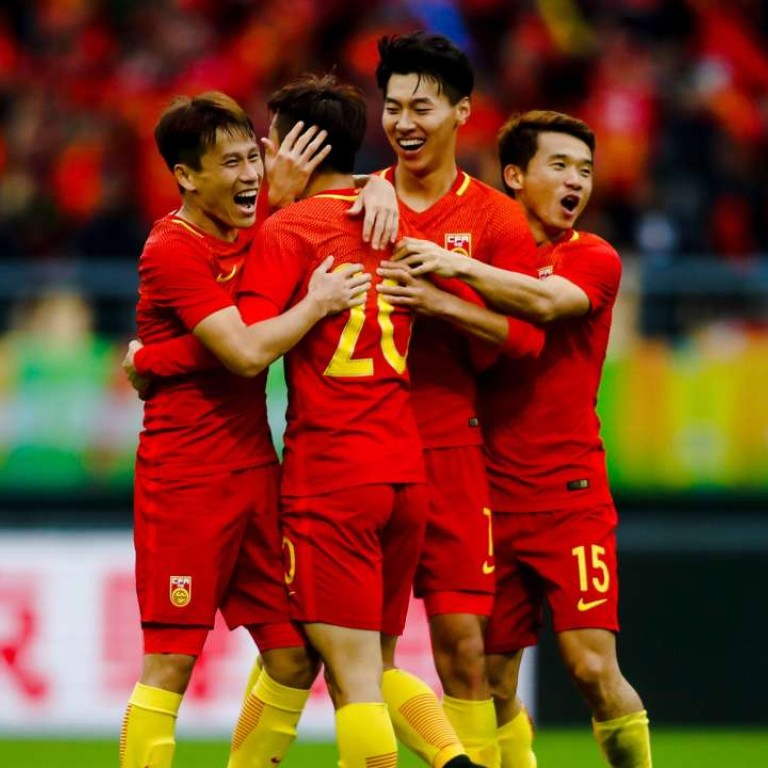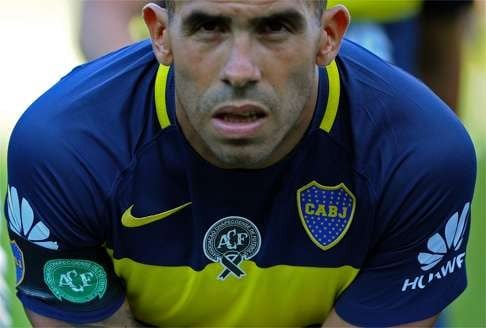
Why the newly introduced foreign player cap could be good news for Chinese soccer
The scrapping of the old ‘4 plus 1’ ruling will lead to more domestic talent being given the chance to shine and working closely with the many world class managers plying their trade in China
It may have ruffled a few feathers around the continent but the decision by the China Football Association (CFA) to abolish the so-called ‘Asian quota’ in the Chinese Super League is the right move for the country’s development in the long-term.
In the short, it means chaos as it was announced less than two months before the start of the 2017 season and more than two weeks after the opening of the transfer window meaning that clubs have already devised and perhaps executed transfer strategies.
But it was going to happen sooner – probably in 2018 – rather than later.

The signing of stars such as Oscar and Carlos Tevez can continue but there are almost certain to be less South Koreans, Uzbeks and Australians in the league in the months and years to come.
The South Americans are brought in for their name value and their attacking capabilities. It can be debated as to whether there are too many. It is the age-old question: does China import attackers because there are no good Chinese equivalents around or is there a lack of local options because China imports attackers?
Yet it can be said with certainty that at the moment, China does not produce strikers that match some of the talent being imported.

Finding a local striker as prolific as Demba Ba or a playmaker as creative as Dario Conca may be tough. But it should not be that hard to produce a defensive midfielder as good as, say, Jung Woo-young of South Korea and Chongqing. In fact, China has to if it wants to challenge in Asia, never mind the world.
Most of the Koreans and Australians may be better than the average local at the moment but more opportunities to play in this increasingly strong league can help Chinese defenders and holding midfielders to improve. They need as much exposure to these world-famous stars as possible. There is no reason to import 20 players from Asia to do a job the Chinese can do themselves.

Kim Young-gwon has improved considerably at Guangzhou by playing under World Cup-winning coaches Marcello Lippi and Luiz Felipe Scolari and facing some genuine world-class players on the pitch.
“You have to keep concentrating all the time,” the defender said when back in Korea last year. “As more buy talented attacking players, you know that it will be your job to stop them scoring. You can learn so much from trying.”

And then there is the money. K-League teams love to complain officially about being unable to compete with the riches of China but they love to count the cash. Jeonbuk Motors sold Kim Kee-hee to Shanghai Shenhua a year ago for US$6 million (HK$46.5m). The team still won the Asian Champions League, thrashing Shanghai SIPG along the way. Australian players will lament a reduction in Chinese opportunities as will their A-league clubs.
China probably won’t. There may be a regret that the CSL could be giving up a chance to become Asia’s representative league, one in which most of the continent’s best players wish to go and fans increasingly look to. This, however, is a fairly abstract benefit that won’t concern decision-makers in Beijing too much.
It may not be good for Asia but Chinese football is better off giving home-grown defenders a regular chance to face some of the best attacking talent in the world. It’s time for China to be selfish.
